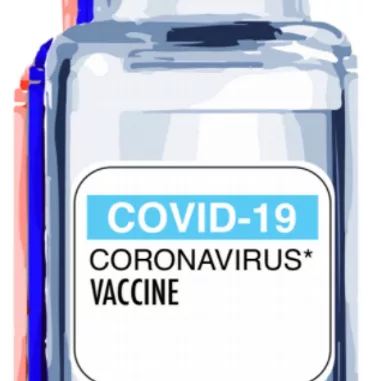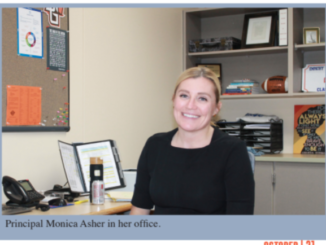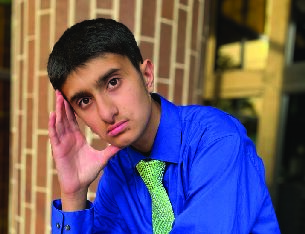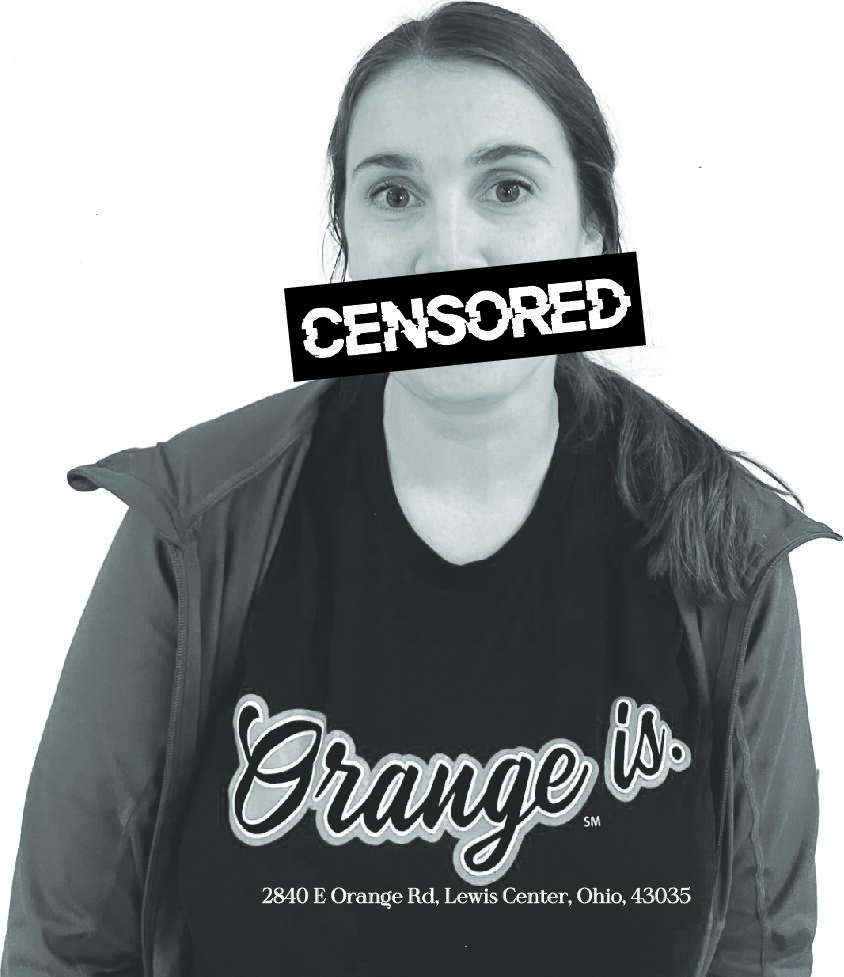
design: Nick Allen
The 10-month nightmare that has been COVID-19 might be coming to an end soon. Before the quarantine started in March, scientists started working on a vaccine to treat the virus, and they haven’t stopped since.
Three major companies are working toward the creation of a vaccine. Pfizer and Moderna are both companies based in the United States while AstraZeneca is a British-Swedish company based in the U.K.
“The companies in the United States completed their pilot testing and they’ve had tremendous success–somewhere near 90 percent of individuals who get the vaccine don’t develop the virus. AstraZeneca has also had similar results,” science teacher Kevin Guse said.
A vaccine will have a huge impact on all aspects of society, but hospitals will see these changes the most. Hospitals have had to completely change the way they do things over the past year, due to COVID-19.
“We have to use a lot of personal protective equipment (PPE) right now. Almost all of our rooms require a gown, a mask, gloves and goggles,” Patient Care Assistant at the NICU at Nationwide Children’s Hospital Macy Quinn said. “Many days we are short staffed because of people who have encounters with those who tested positive or they have tested positive themselves.”
The vaccine will take a lot of the pressure off of those who work at hospitals.
“If effective, the vaccine will allow units to not be short staffed and ease the stress of transmission to these kids. A vaccine may also help with PPE shortages around the world,” Quinn said.
However, many people don’t want to take the vaccine immediately after it’s released to the public because of concerns they have about the effects. Some of these concerns are based on misinformation.
“There is this perception that vaccines can cause symptoms of autism. This has been completely debunked. The author that published the original research that led to that finding has admitted to data fabrication,” Guse said. “Unfortunately, it’s kind of like squeezing toothpaste out of a tube. Once that information is out there, it’s hard to get it back in.”
Some of the concern surrounding the vaccine, though, is simply the natural worry that comes with new scientific discoveries. No one knows how effective the vaccine will be nor the hypothetical effects it could have on the people who take it.
“We don’t have longitudinal data,” Guse said. “We don’t have data from people over 10 to 20 years taking the vaccine because it’s brand new, but I think the fear of [unforeseen problems] is somewhat blown out of proportion.”
Even though there is concern, the vaccine will be pushed forward into the public after it’s given to first responders. When it is more widely available, it may be tempting to think that masks are going to be immediately unnecessary, but that’s not the case.
“Until we have a wide distribution (around 70 percent), we’re still going to have considerable spread,” Guse said. “And not only that, there are also certain people who can’t take the vaccine. We’re reliant upon the 90 percent of people that can take it, so that those individuals who are immunocompromised or have allergies that don’t allow them to take it don’t have to.”
However, even after a wide distribution of the vaccine is reached, there will be some parts of life that never go back to normal, especially in hospitals.
“I don’t think we will truly ever go back to normal,” Quinn said. “We worry a lot about babies getting COVID because most of them are already on ventilators and can’t breathe on their own, so they will struggle more even after a vaccine.”
Not all effects of the virus will be negative, though. Due to all the COVID protections put in place, many people have avoided other illnesses they get this time of the year.
“With people washing their hands more frequently and wearing a mask, a lot of people are going to realize that they don’t get the flu as frequently,” Guse said. “People might start wearing masks and washing their hands more, just as a product of seeing that they didn’t get the flu this year.”


